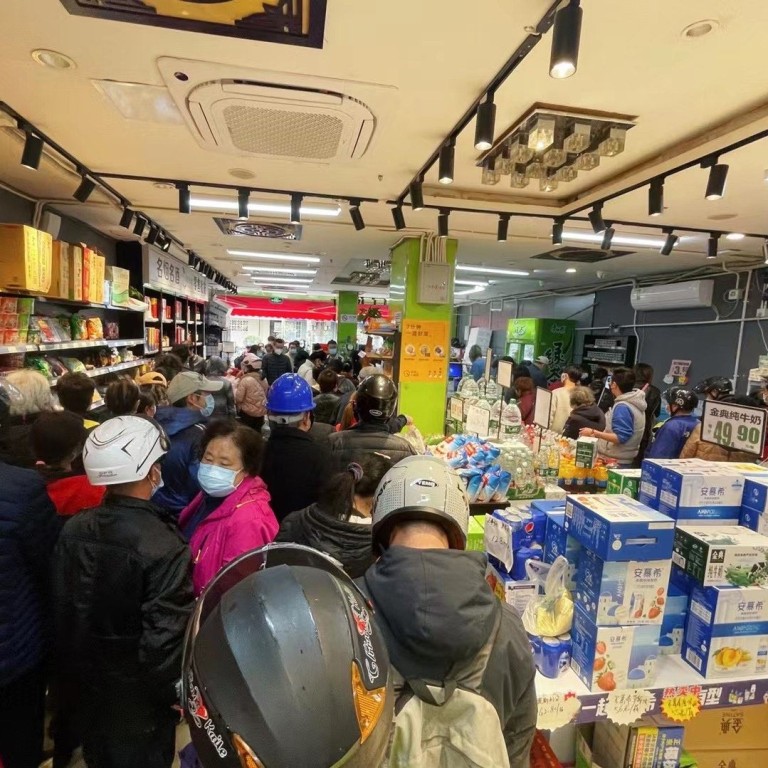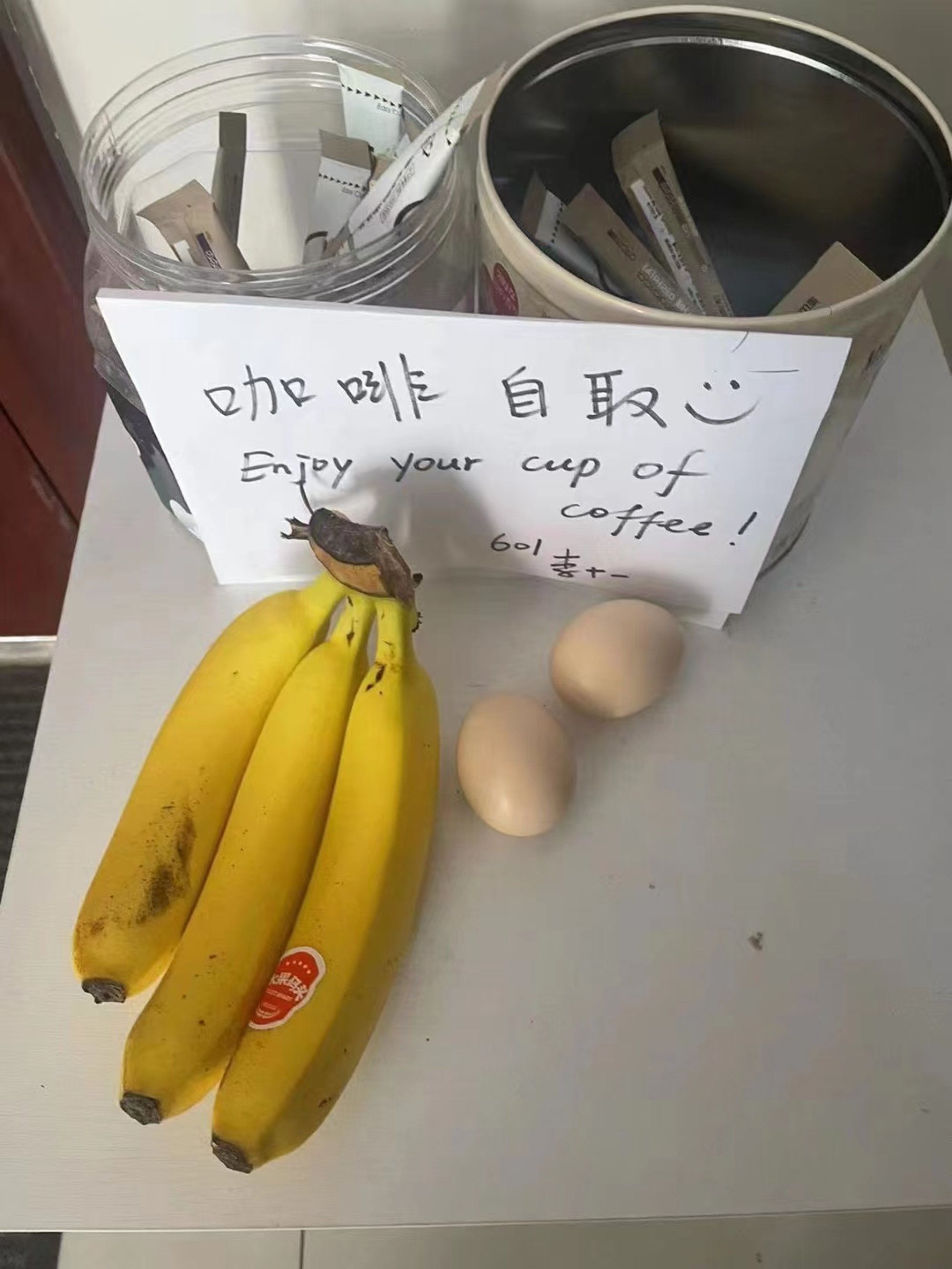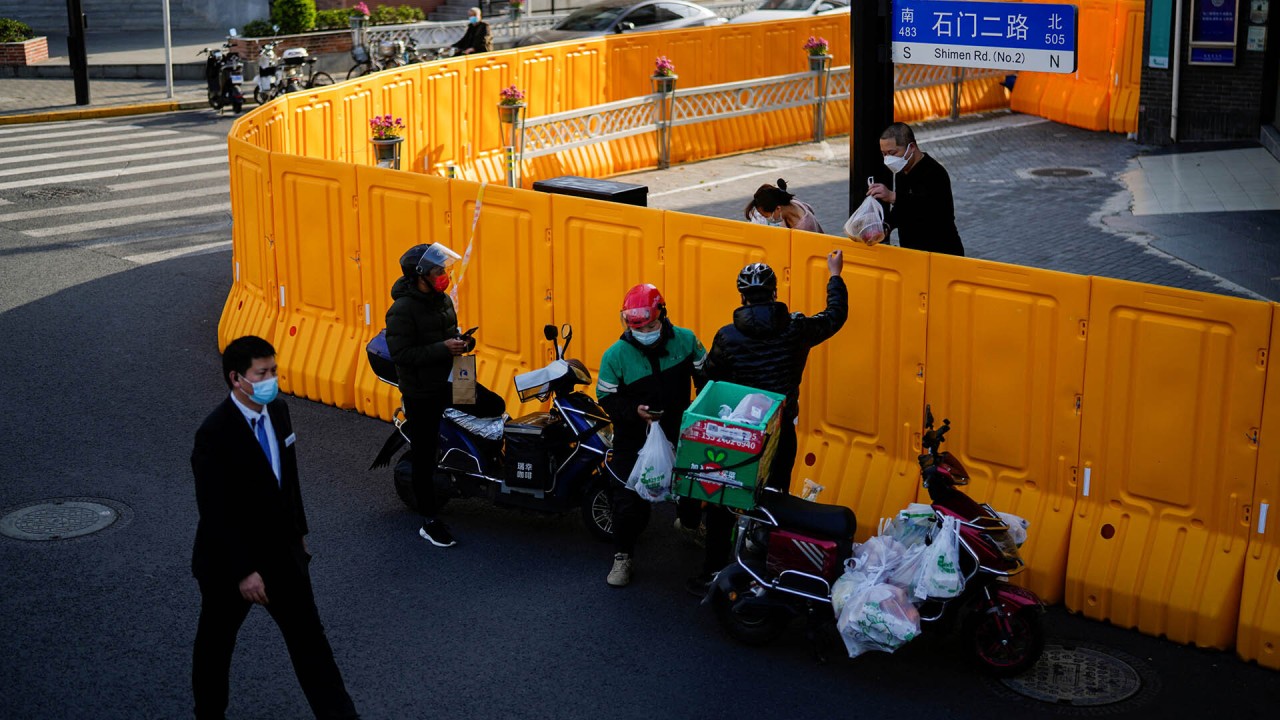
China coronavirus: Shanghai residents risk punishment for breaching lockdown, sneaking out at night to barter for food
- The megacity of 25 million people remains under lockdown after almost two weeks as it struggles to contain an outbreak of the Omicron strain
- Residents have banded into barter groups and will trade anything from food items like eggs and fruit to sanitary items, all of which are in short supply
Each night under the cover of darkness, Shanghai resident Zhang Hongyan and her neighbours conduct barter transactions to get essentials which are in short supply due to the city’s coronavirus lockdown.
The residents conduct their bartering at night to avoid being caught outside their homes by authorities who enforce strict penalties for anyone caught breaking lockdown. On Thursday night, Zhang, who lives in the Baoshan district of the city, offered 10 eggs for barter in a WeChat group chat in the hope of receiving some fruit in return. On this occasion she was lucky, one of her neighbours agreed to give her a few apples in exchange.
“It’s not convenient during the day. I’ll leave the eggs at your building gate now and you go get them quickly,” she told the neighbour, named Anan, at 10 minutes to midnight.
“OK I’ll fetch it and leave the apples there. Non-face-to-face transaction to reduce the risk of infection,” Anan replied.
Things being swapped range from garlic to sanitary towels after residents were ordered to stay at home to curb the city’s worst Covid-19 outbreak to date — driven by the highly transmissible Omicron variant of the virus.
While most households have received some supplies from the government after most of the city went into lockdown from Monday last week, the ancient way of trading has regained popularity within resident compounds as people find supplies running low and delivery services unable to keep up with demand.
On Thursday Shanghai recorded over 21,000 new infections, of which 824 were symptomatic, pushing the total number of cases since March 1 to a new high of 131,000. There is no word from the municipal government yet when it will lift the citywide lockdown.

Shanghai started a de facto citywide lockdown on April 5 when the municipal government reversed its earlier plan of ending a two-phase shutdown of Pudong and Puxi, the eastern and western sides of Huangpu River. Over the past week, nearly all of the city’s 25 million residents were confined to their homes, while supply chain issues have caused severe delays to the delivery of food and basic essentials for many in the city.
Vice-Mayor Chen Tong admitted on Thursday that some residents’ daily lives had been affected by the delivery delays and claimed that officials would fight “on the front line” to supply adequate food and necessities to people.
Cici Chen, a local woman living in a large residential compound in Songjiang district, said bartering had become an important part of her daily life and for residents in her building trying to help each other.
“At first some people offered certain stuff for free if they had adequate stock, but those who took it would volunteer to give something in return to express their gratitude. So gradually more people joined and it’s become our new way of surviving,” she said.
As the mother of a two-year-old child, Chen said she received baby milk formula powder and diapers from neighbours and in return she is trying to find them eggs and milk.
“Shanghainese are quite cold when it comes to relationships with neighbours, but this situation has brought our hearts together,” she said.
The practice is a little harder when the two sides live in different buildings, as the Shanghai government has stressed that the lockdown means people have to stay at home until restrictions are lifted. As a result people are unable to collect deliveries from the gates of their community or even dispose of their rubbish.
Balcony gardens prove saviours during China’s Covid-19 lockdowns
Designated volunteers or the community’s security guards have been enlisted to carry out these jobs instead.
But despite the risks of being caught breaching the lockdown by leaving one’s building, many are doing just that in order to trade for basic supplies while the authorities struggle to contain the virus.




